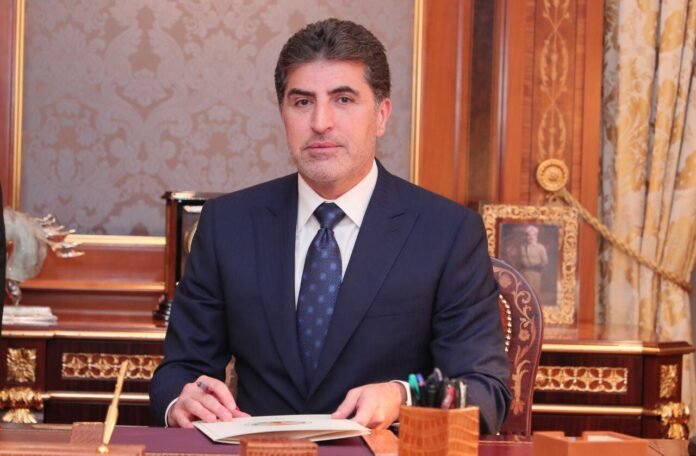Kurdistan Region President Nechirvan Barzani continues to push Kurdish unity in Syria’s crossroads. His leadership now drives a critical phase of diplomacy aimed at calming tensions between Turkiye and the Syrian Democratic Forces (SDF). As regional instability rises, Barzani’s actions gain more importance.
Barzani actively mediates between Turkish President Recep Tayyip Erdogan and SDF commander Mazloum Abdi. His direct outreach to both sides has significantly reduced hostilities since early January. No Turkish military operations have occurred against the SDF during this period, largely due to Barzani’s efforts.
His quiet but firm diplomacy grows more relevant as unrest spreads in Syria. Sectarian violence in Suwayda has weakened the SDF’s bargaining strength, shifting dynamics in the ongoing negotiations. At the same time, key international players, including the United States and Russia, continue to monitor these developments.
Barzani’s initiative stands out in this complex landscape. While other regional actors remain cautious, he steps forward with strategic resolve. He understands that the power vacuum in northeast Syria could spiral into greater chaos without stable Kurdish cooperation.
In private meetings with Turkish officials, Barzani promotes dialogue over conflict. He emphasizes that regional stability depends on inclusive talks rather than military escalation. This stance has gained quiet support from diplomats concerned about another drawn-out war in the region.
In parallel, Barzani communicates regularly with SDF leaders. He urges them to adopt a more flexible approach toward long-term solutions. He believes that Kurdish unity in Syria’s crossroads requires compromise and communication, not entrenched positions.
Barzani also works to build confidence between both parties. He encourages informal agreements that reduce friction along the borders. These efforts offer hope that a more structured dialogue may soon emerge.
Regional watchers believe Barzani’s role will only grow. His balanced approach gives him credibility with both Ankara and the SDF. More importantly, his vision for a peaceful outcome resonates with global powers who want to avoid deeper regional crises.
His strategy avoids public statements. Instead, Barzani relies on quiet meetings and trusted intermediaries. This careful method has helped him make progress where others have failed.
As Syria remains fragmented, and alliances continue to shift, Barzani’s leadership helps keep diplomatic channels open. His repeated message—that Kurdish unity in Syria’s crossroads must be preserved—shapes his entire mission.
In this uncertain moment, Barzani offers a rare sign of hope. He demonstrates that patient diplomacy can achieve more than confrontation.

